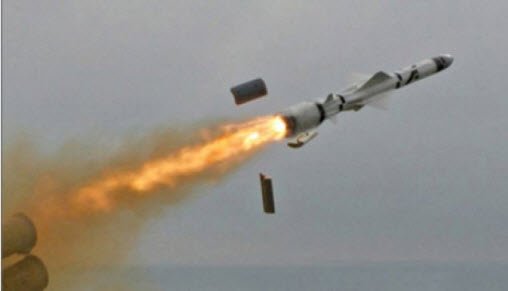
The US has criticized Russia for what it calls an “unfortunate decision” to deliver missiles to the Syrian government.
Chairman of the Joint Chiefs of Staff General Martin Dempsey said the shipment “will embolden the regime and prolong the suffering” that has killed 80,000.
The sophisticated anti-ship missiles could be used to counter any future foreign military intervention, US officials told The New York Times.
Some 1.5 million people have fled the conflict, says the UN refugee agency.
Most have fled to Jordan and Lebanon, but not all have been registered yet, meaning the true total is likely to be far higher, according to the UNHCR.
Meanwhile, Syria’s national production has dropped by 40% and the number of people living below the poverty line has risen from two million to five million in just two years, according to the man in charge of the UN’s plans for reconstructing Syria after the conflict.
Abdullah al-Dardari, a former deputy prime minister in President Bashar al-Assad’s administration, said the rebuilding what has been destroyed would cost up to $80 billion.

Gen. Martin Dempsey’s description of Moscow’s decision to send missiles to Syria as “ill-timed and very unfortunate” comes amid growing alarm that chemical weapons may have been used in the country, something President Barack Obama has said would be “a red line”.
Russia is one of Syria’s few remaining allies and a long-term arms supplier to the Assad regime. Over the years, in contracts worth billions of dollars, it has sold thousands of tanks, artillery units, aircraft, helicopters and defense systems to Damascus.
In 2007, the two countries signed a deal on the supply of Yakhont missiles which, with a range of 300 km (200 miles), could prove a threat to warships in the Mediterranean.
Although there have been growing calls for arms to be channeled to the rebel fighters in Syria, there has so far been very limited enthusiasm in the West for outright military intervention.
But there is concern that the presence of sophisticated Russian-supplied weaponry will make it much harder to agree and carry out such intervention, implement a blockade or conduct targeted airstrikes in the future.
Without confirming reports of the missile shipment, Russia’s foreign minister Sergei Lavrov said the supply of missiles did not break any international rules.
UN Secretary General Ban Ki-moon met Sergei Lavrov in Sochi on Friday to discuss plans for an international conference to try to find a way of ending the Syrian conflict, which would aim to bring together the Syrian opposition and members of Bashar al-Assad’s government.
The UN estimates that 80,000 people have died in the uprising, and that some 4.25 million people have been displaced within the country.
The simmering conflict has raised tensions on Syria’s borders: On Friday, Turkish state media reported at least 10 people were killed when a fuel tank exploded in the southern town of Altinozu in Hatay province, where car bombs killed 50 people last week.
The fuel tank was set alight by smugglers during a raid by police, officials said.
Frustrated by the lack of international consensus on Syria, Turkish PM Recep Tayyip Erdogan has had talks this week with President Barack Obama in Washington where he was expected to call for a more assertive stance.
Recep Tayyip Erdogan said on Friday the UN should discuss imposing a no-fly zone inside Syria at the international conference being mooted.
“With respect to a no-fly zone… it is not a decision that could be taken between the United States and Turkey. It is something that would have to come through the UN Security Council,” he said.
Syria’s Russian-made military:
- Nearly 5,000 tanks; 2,500 infantry fighting vehicles; 2,500 self-propelled or towed artillery units
- 325 Tactical aircraft; 143 helicopters
- Nearly 2,000 air defense pieces
- 295,000 active personnel; 314,000 reserve personnel
Statistics: IISS
[youtube 6WCDv9e-CT8]